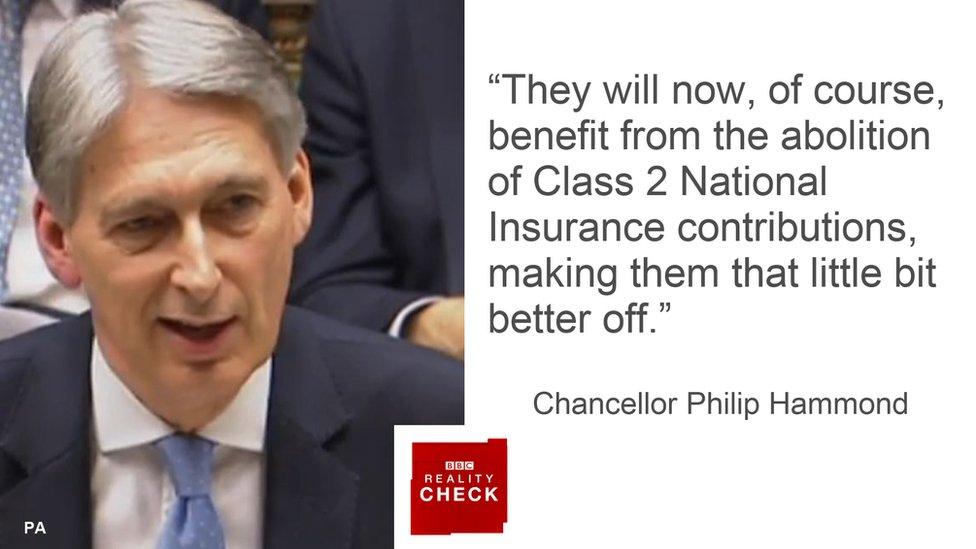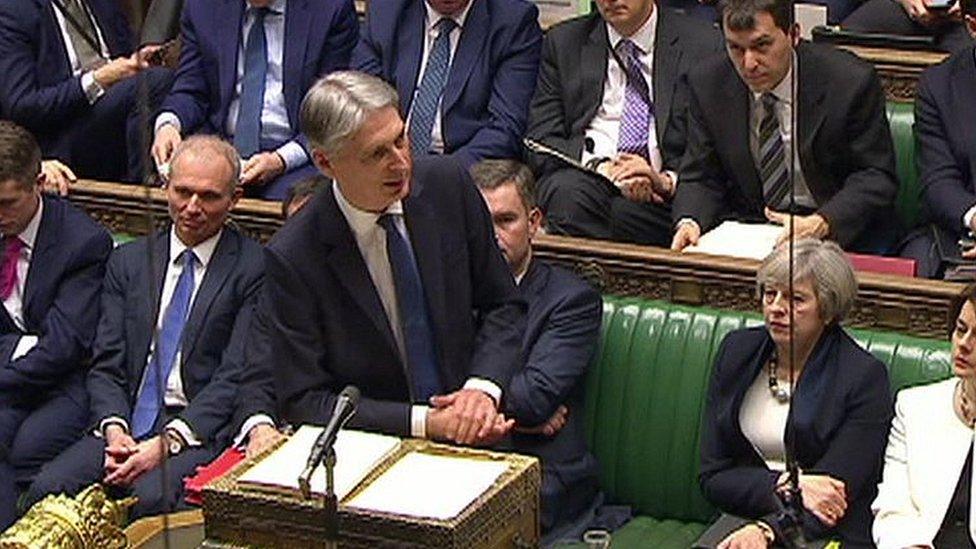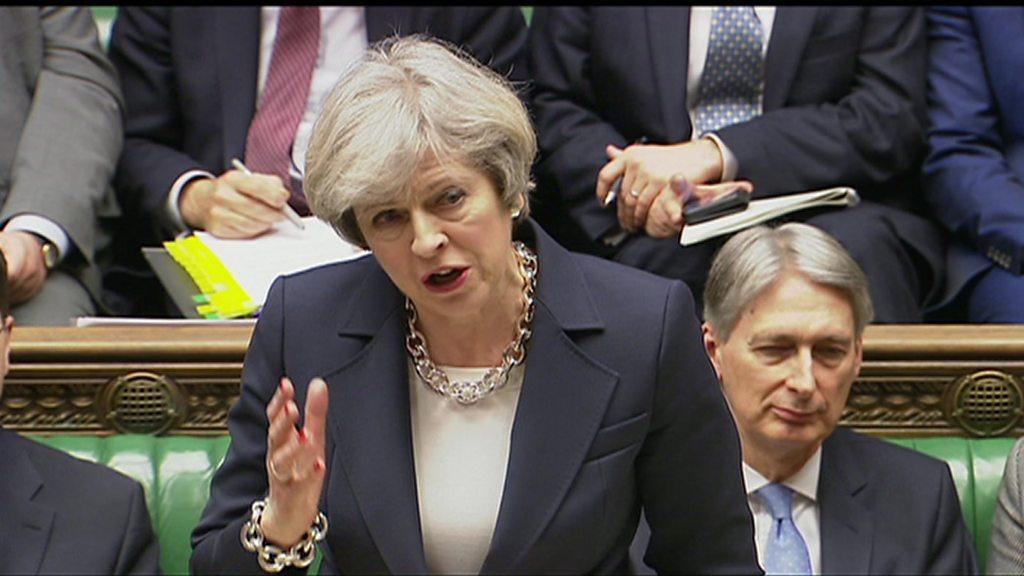Reality Check: Who benefits from National Insurance U-turn?
- Published

Reality Check verdict: About 80% of self-employed workers will pay less National Insurance from April 2018, with the rest seeing no change after the government abandoned changes announced in the Budget.
Chancellor Philip Hammond announced on Wednesday that he would not be raising Class 4 National Insurance contributions as he had planned to in last week's Budget.
Class 2 National Insurance contributions will still be abolished from April next year. They are paid at a flat rate of £2.80 a week by anyone making profits of more than £5,965 a year.
Figures prepared for the BBC by the Office for National Statistics, external (ONS) suggest that about 20% of self-employed people earn less than £5,965. They do not pay any National Insurance and will still not pay any - that is about one million people.
The remaining 80%, approximately 3.6 million people, will now get the cut to NI that they had been expecting since George Osborne announced the abolition of Class 2 contributions in 2016.
These figures are not precise because they are based on an ONS survey, which estimates the distribution of earnings for the self-employed.

Who would have lost out?
In an interview the morning after last week's Budget, the chancellor said that 60% of self-employed workers would pay less NI as a result of the abolition of Class 2 contributions combined with the increase in Class 4 contributions.
He said: "Of the 15% of people who are self-employed, 60% will see a reduction in their National Insurance charge. Anyone earning less than £16,250 a year will see a reduction in the National Insurance contributions they pay."
That was clearly not the case - those earning less than £5,965 a year would not have paid any National Insurance either before or after the changes.
The ONS survey estimates that 40% would have paid less NI, while 20% would see no change.



- Published15 March 2017

- Published15 March 2017
- Published15 March 2017

- Published9 March 2017
